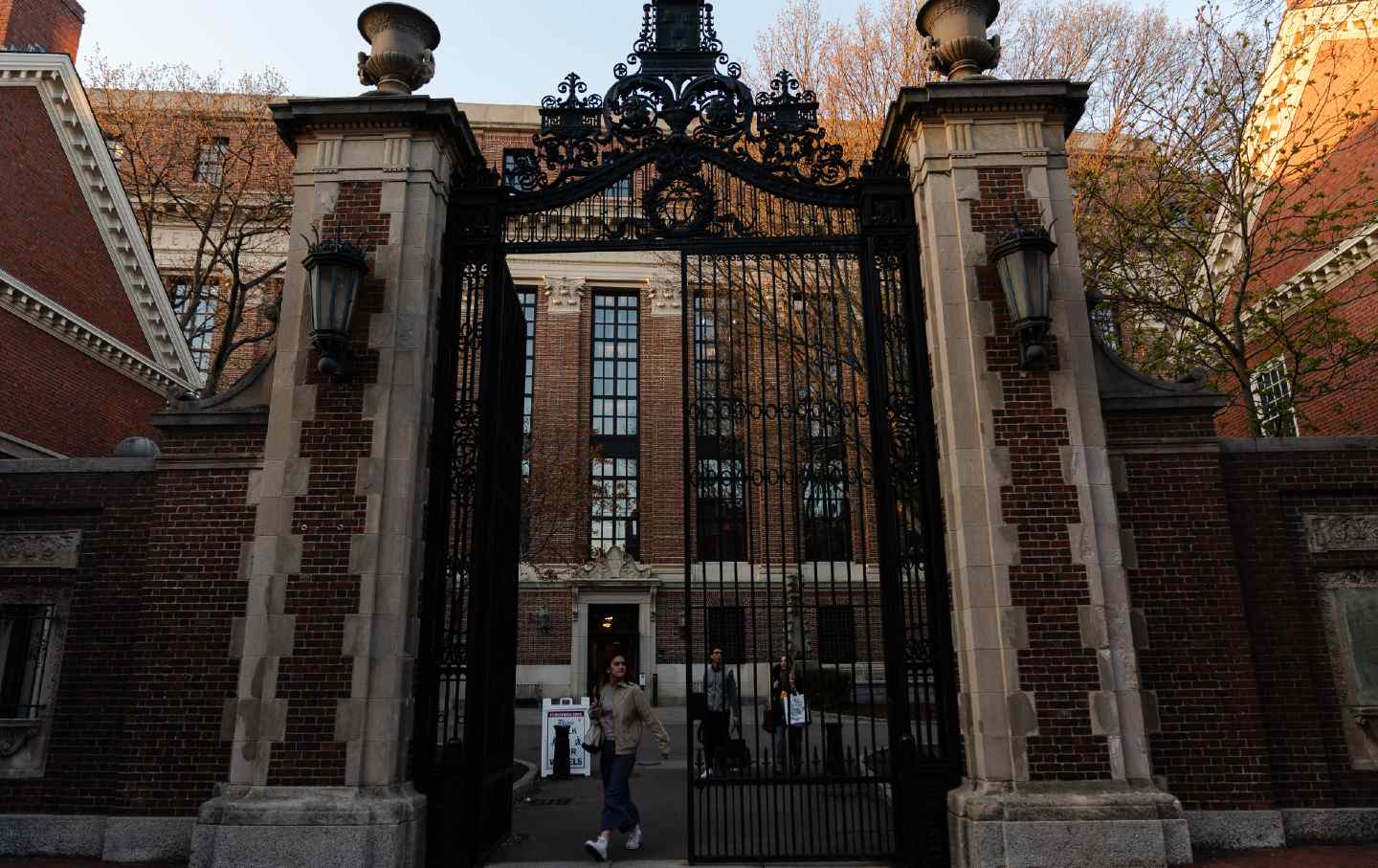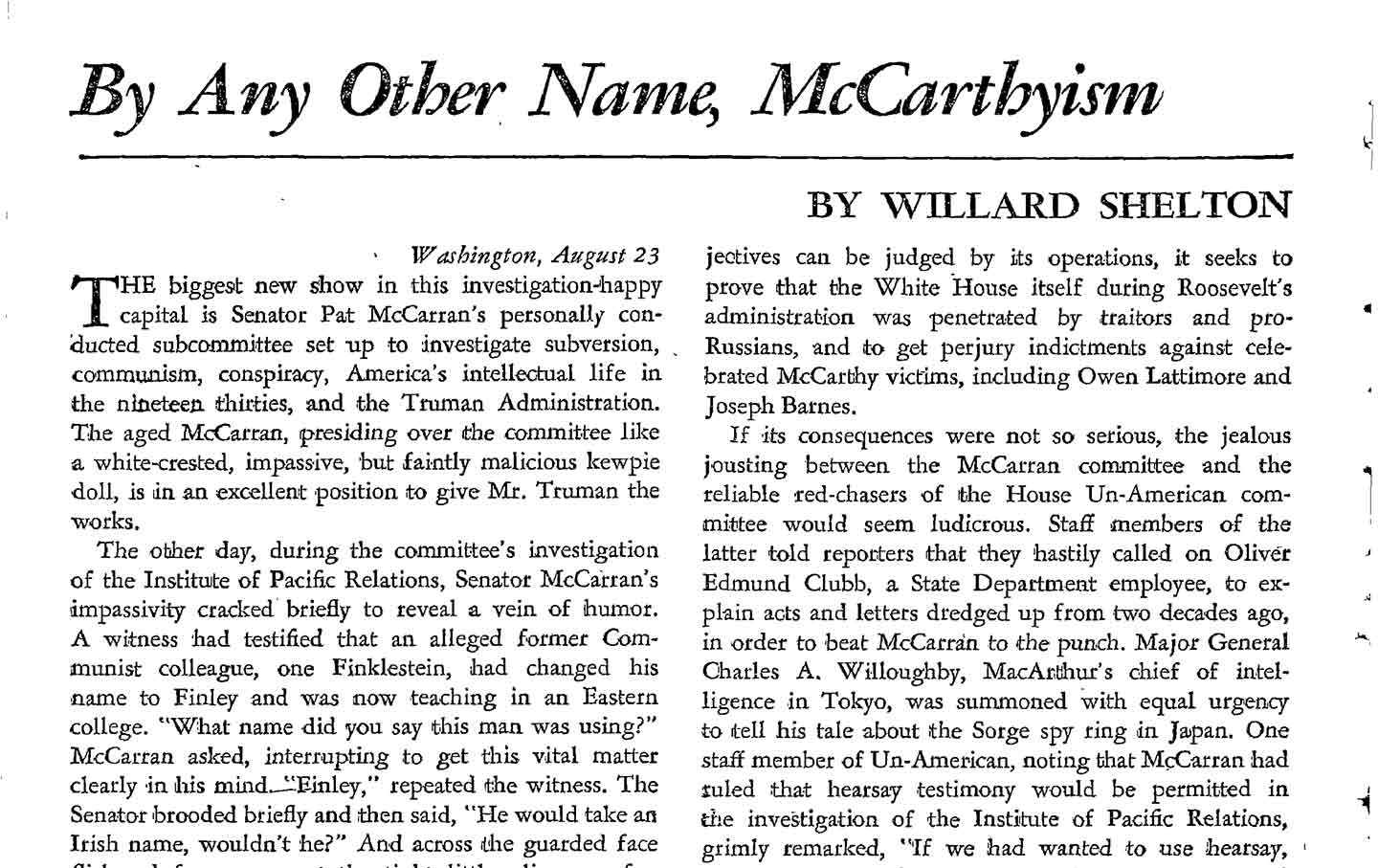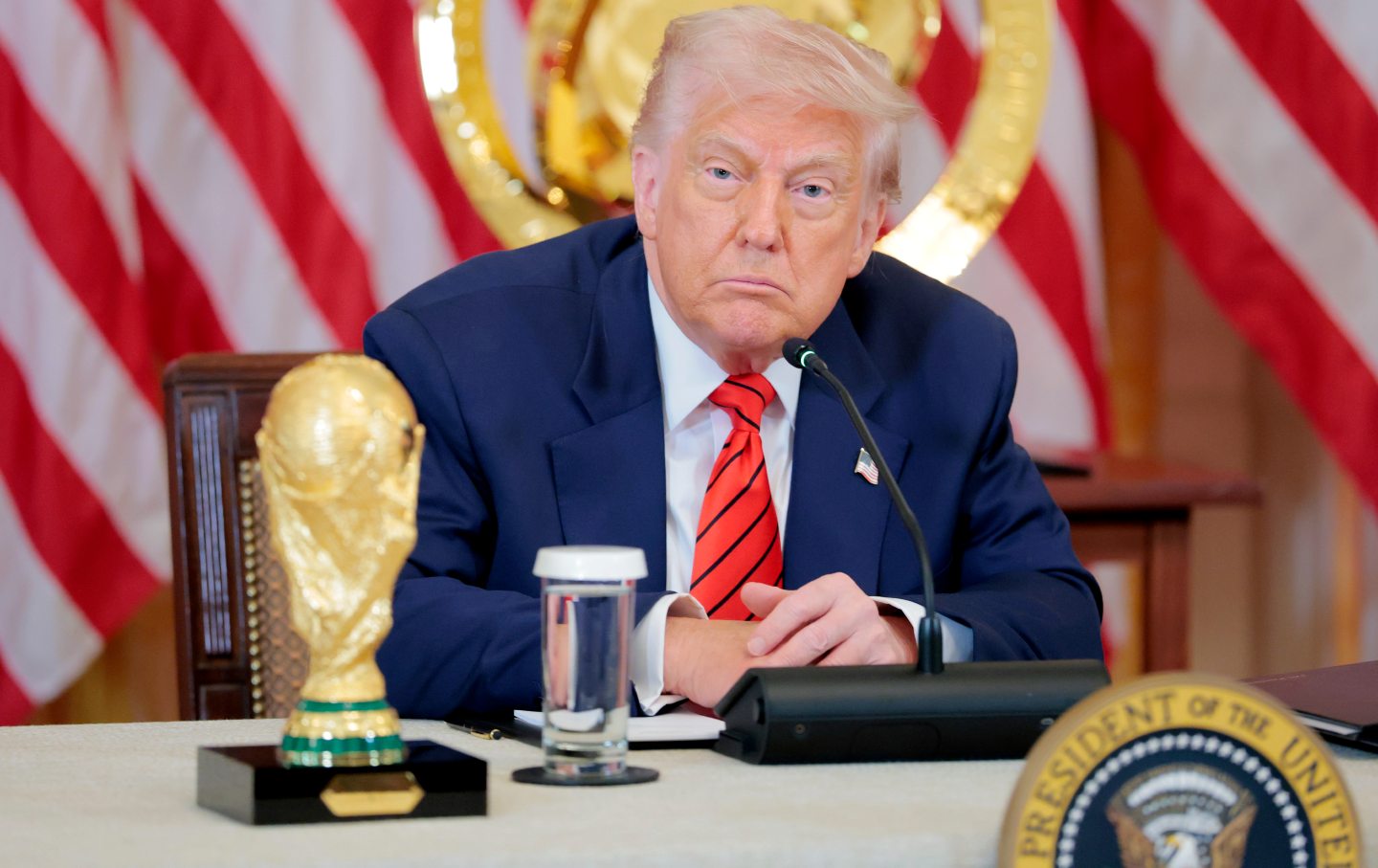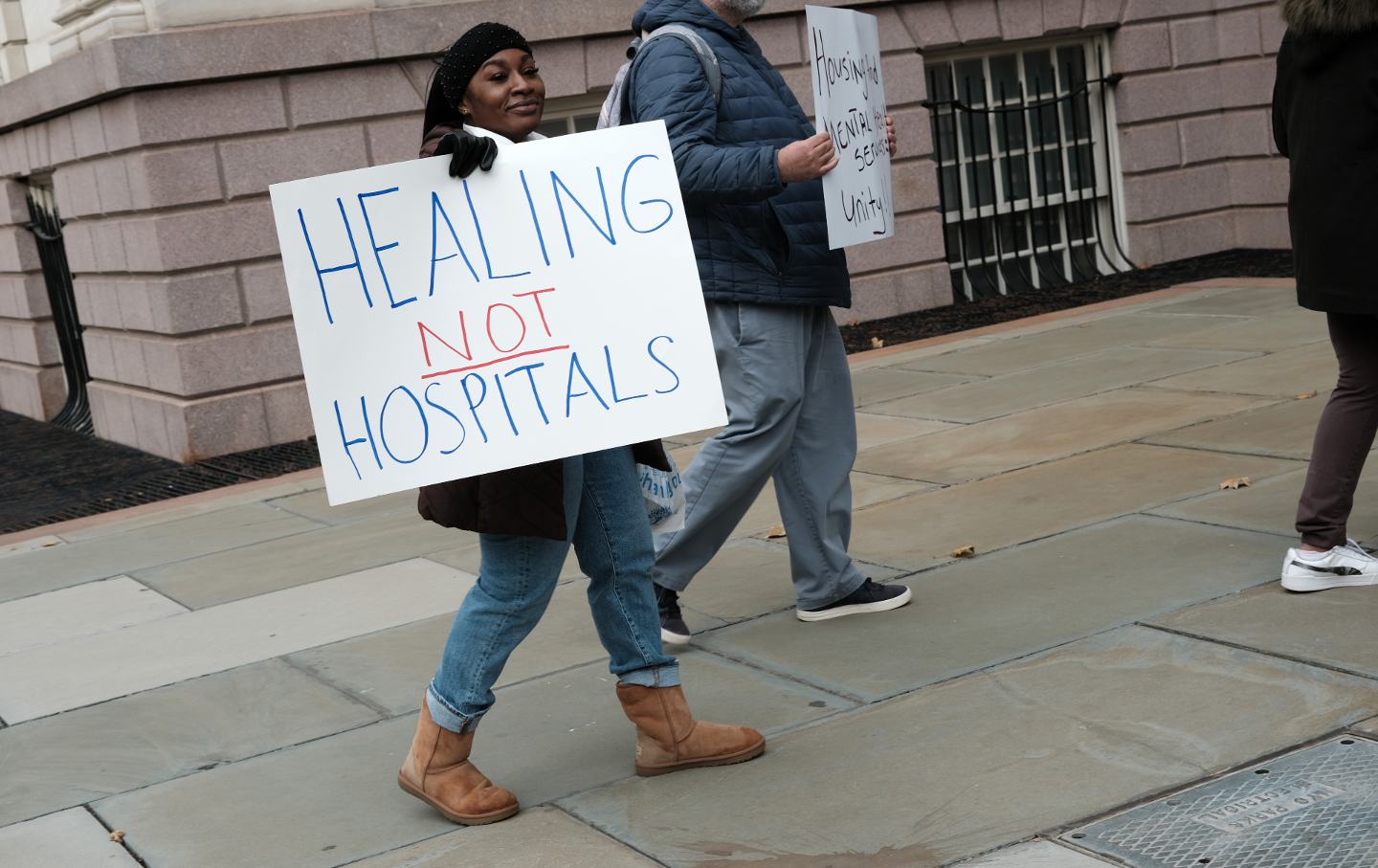Why Don’t Americans Believe in Science?
When medicine doesn’t focus on prevention, anti-vaccination rhetoric flourishes. It’s time to address the system.
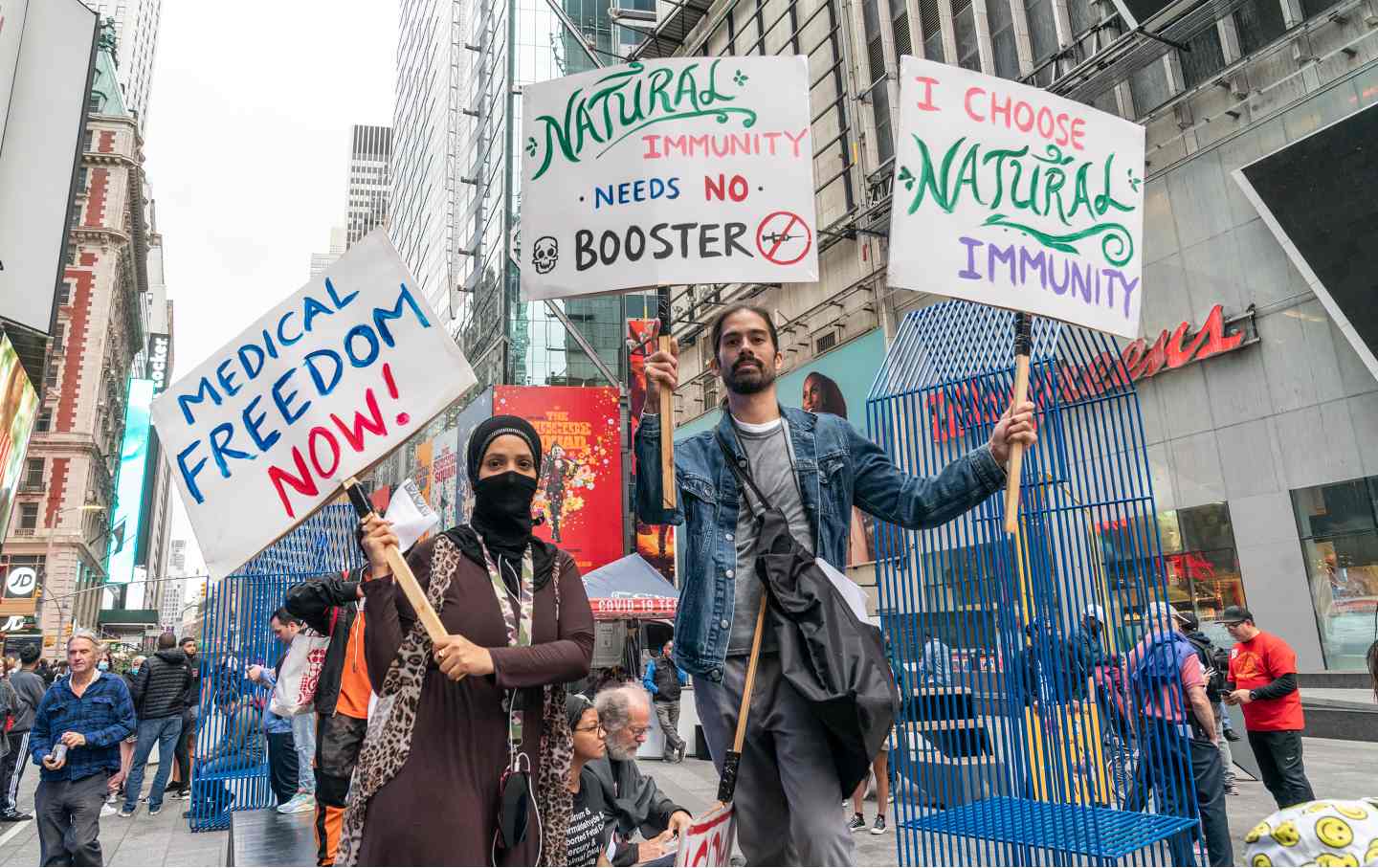
Early last month, the scientist and medical researcher Dr. Peter Hotez shared a photo on X depicting a law enforcement officer leading two bomb-sniffing dogs through an empty lecture hall. An American flag stood in the corner. Hotez’s caption read: “Dog sweep prior to my next @Yale lecture this afternoon. Our/my new normal.”
At the time, he was on tour for his newest book, The Deadly Rise of Anti-science: A Scientist’s Warning, which attempts to explain how our nation has descended into a Dark Age in which scientists are cast as enemies and “conspirators with global elites to acquire vast wealth and power.” In his book, which Hotez wrote during the Covid-19 pandemic, he explains that while anti-science forces aren’t new, in recent years they have become more organized, better funded, and embraced by more high-profile politicians such as Ron DeSantis and Marjorie Taylor Greene, as well as pundits who reach millions like Tucker Carlson and Sean Hannity. “This was no longer small nongovernmental groups monetizing the internet,” he told me in a recent interview. “This was full-on adopted as a platform of a major political party in the United States.”
In The Deadly Rise of Anti-science, Hotez focuses most squarely on the driving force of this era’s anti-science movement: the Covid-19 pandemic. He estimates that 200,000 Americans died preventable deaths during the Delta-variant surge of 2021 simply because they shunned vaccination. These lost lives, he writes, were “an orchestrated product of a networked political ecosystem of anti-science extremism.”
Hotez is well-positioned to raise alarms about anti-science. He is a physician scientist who, for both personal and professional reasons, was publicly defending vaccines long before Covid-19. In 2018, he published the book Vaccines Did Not Cause Rachel’s Autism: My Journey as a Vaccine Scientist, Pediatrician, and Autism Dad. Throughout the latest pandemic, he was a tireless source of medical expertise for print, radio, online, and TV news outlets. As a result of this visibility and advocacy for vaccines, he “became a new favorite target for the far-right” he explains. He got menacing voicemails. He was accosted at home. He received e-mails calling him an “enemy of the United States Constitution” and vowing, “I will celebrate the day I see you hanging from the gallows.”
He was not alone. Nearly two in five Covid scientists reported similar attacks via phone, e-mail, social media or in person, according to Hotez. As a result, many experienced anxiety, depression, fears for their safety, and a decline in productivity. What’s worse, Hotez warns that Covid is not the end of this. “We should expect it will spill over to other areas,” he writes, “with a resulting drop in immunization rates for all childhood vaccines and interference with many other aspects of public health, including global efforts to combat HIV/AIDS, malaria, tuberculosis, and neglected tropical diseases.”
The Deadly Rise of Anti-Science foretells a worrisome future for vaccines in America—but it also opens up larger questions about our healthcare system. It is hard to list all of the urgent issues. As a recent Washington Post series explores, life expectancy in the US has been declining for years. Meanwhile, the nation’s rates of infant and maternal mortality outpace other high-income countries. Americans hold almost $200 billion in medical debt, and prescription drugs cost so much that people routinely choose not to take them for financial reasons, suffering dire health outcomes instead. Physicians are burning out, trying to unionize, and leaving the profession altogether, while hospital executives collect eye-popping salaries. Amid it all, glaring race-based disparities in health outcomes persist.
Is anyone fully insulated from this dysfunction? As a longtime adjunct college instructor, I’m all too aware of how health insurance is linked to full-time employment. And I, too, am scared and angry about right-wing anti-science. But what The Deadly Rise of Anti-Science doesn’t answer is how we might address the rise of anti-science while also working to fix the bigger, systemic issues that loom behind the problem Hotez calls a “terrible monster.”
Gillian Mason, director of communications at the advocacy organization Healthcare-NOW says she’s actually surprised that more people haven’t been anti-science throughout the country’s history. From scientific racism to the Tuskegee Syphilis experiments, to the dirty tricks used to push OxyContin onto doctors and their patients, “science has traditionally been used and weaponized against working people and people of color,” she says.
Dr. Ashish Jha, dean of Brown University’s School of Public Health and former White House Covid-19 response coordinator, offered a recent example of how this works: Robert F. Kennedy Jr.—who announced last month that he’s running as an independent in the 2024 presidential election—is targeting marginalized groups with his anti-vaccination message. In 2021, he produced a documentary called Medical Racism: The New Apartheid, which NPR described as “resurfac[ing] and promot[ing] disproven claims about the dangers of vaccines…[and] aimed squarely at a specific demographic: Black Americans.” With this film, Jha says, Kennedy takes “that mistreatment [and] the mistrust…and drives his anti-vaccine message through.” And he is not to be dismissed: A recent Quinnipiac poll showed Kennedy with 22 percent support in a hypothetical three-way race with Donald Trump and Joe Biden.
One place where doctors may be able to persuade science-hesitant patients is in primary care, where patients go for regular checkups and other day-to-day healthcare needs. But according to a recent report by the National Association of Community Health Centers, over 100 million Americans face barriers to accessing this care in the first place, and thus may rarely come face-to-face with a real medical professional. A 2020 survey by the Commonwealth Fund found that less than half of American adults have a long-standing relationship with a primary care provider. Dr. Vineet Arora, the dean of Medical Education at the University of Chicago’s Pritzker School of Medicine, tells me that when people can’t find or access a doctor, they seek other sources of info. “They’re gonna go to their community member or social media or chat GPT, or whatever podcast that they’re listening to” she says.
The crisis in primary care can’t be easily separated from other systemic issues. A lack of patient access to primary care also has to do with a supply issue, as it usually pays less than specialties in the medical field, which makes it less appealing to medical students, many of whom are trying to climb out from under mountains of student debt.
And the crisis in primary care is actually part of a bigger crisis of preventive care, as our entire healthcare system is geared more toward fixing problems than preventing them. When medicine doesn’t focus on preventing problems, anti-science flourishes, which, according to Arthur Caplan, a professor of bioethics at New York University’s medical school, is how we ended up with a booming “wellness” sector that’s often conspicuously lacking in medical rigor and scientific grounding. When “the money is on the ‘fix-it’ end of the street,” Caplan says, our system will also inevitably play catch-up on massive prevention campaigns like Covid vaccines.
Of course, it’s impossible to have this conversation without discussing the very nature of the US fee-for-service system itself. Millions of Americans face healthcare debt, and many are choosing between paying medical bills and buying basic necessities. This isn’t a good foundation for a trusting relationship. And when people seek treatment for themselves or their loved ones, the care they receive is often disjointed, expensive, and alienating.
Frederick Isasi, executive director of the healthcare consumer advocacy organization Families USA, tells me that our system often incentivises profits and high-margin services over quality and overall health outcomes. The results are predictable: “Over time, what we’ve seen is that people’s level of satisfaction, their level of trust, is really eroding,” he says.
Popular
“swipe left below to view more authors”Swipe →And it isn’t just patients who are frustrated. Dr. Arghavan Salles, an associate professor at Stanford Medical School who spent time treating Covid patients in emergency wards at the height of the pandemic, described the current strains on doctors trying to navigate a deeply flawed system. Well-intentioned physicians are often hamstrung by obligations and responsibilities in a system where workers at every level are “overwhelmed and overworked,” she says.
Patients don’t see what Salles describes as the “constant struggle” that doctors face behind the scenes to meet their various obligations. All too often, a patient only sees a rushed visit where they didn’t get all of their questions answered or perhaps felt brushed off. And this, in turn, leads to more disillusionment and distrust.
“I think there’s a transference of seeing how deeply flawed our healthcare system is and needing someone to blame it on and the person you’re seeing often is the physician,” she says. “So that’s who you blame.”
Dr. Hotez, for all of his staunch defense of vaccines, is no apologist for the status quo in American healthcare. We have one of the most expensive and least efficient of any industrialized nation. “It is a broken system; there’s no question about it,” he said. In our interview, he was incredulous that Pfizer and Moderna, after receiving tens of billions of US taxpayer dollars for development costs and purchases of their Covid vaccines, had proceeded to jack up the prices for those jabs. “I mean, do you want people to hate you?” he said. (Here, too, RFK Jr. has found a point of attack; in a recent interview, he called the pharma industry a “criminal enterprise.”)
Hotez’s advice for how we can fight anti-science and fix our healthcare system is to be more intentional and specific in how we talk about these issues. In particular, we must separate actors that vaccine opponents are all too eager to conflate.
Vaccines are often developed by medical scientists at the academic health centers who “are working day and night trying to develop new cures, new vaccines, and [working] very much with a humanitarian drive,” Hotez says. Before those vaccines are recommended for the general public, they must pass through an “advanced monitoring system” at the CDC and FDA that has been built over decades. “That shouldn’t be conflated with the greed from the pharma companies, which is real,” he said.
As Gillian Mason notes, our efforts to build trust in science can’t just be better and louder explanations of the facts themselves. We need to reckon with painful histories of harm, bias, and mistreatment. “The problem isn’t necessarily with the science,” she says. “It’s with the institutions that have weaponized science in the past.”

